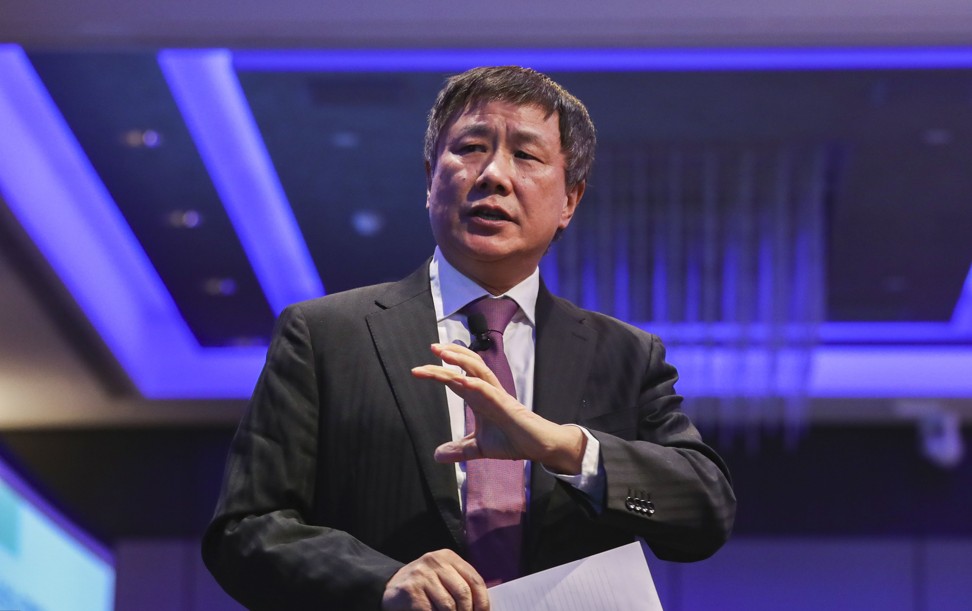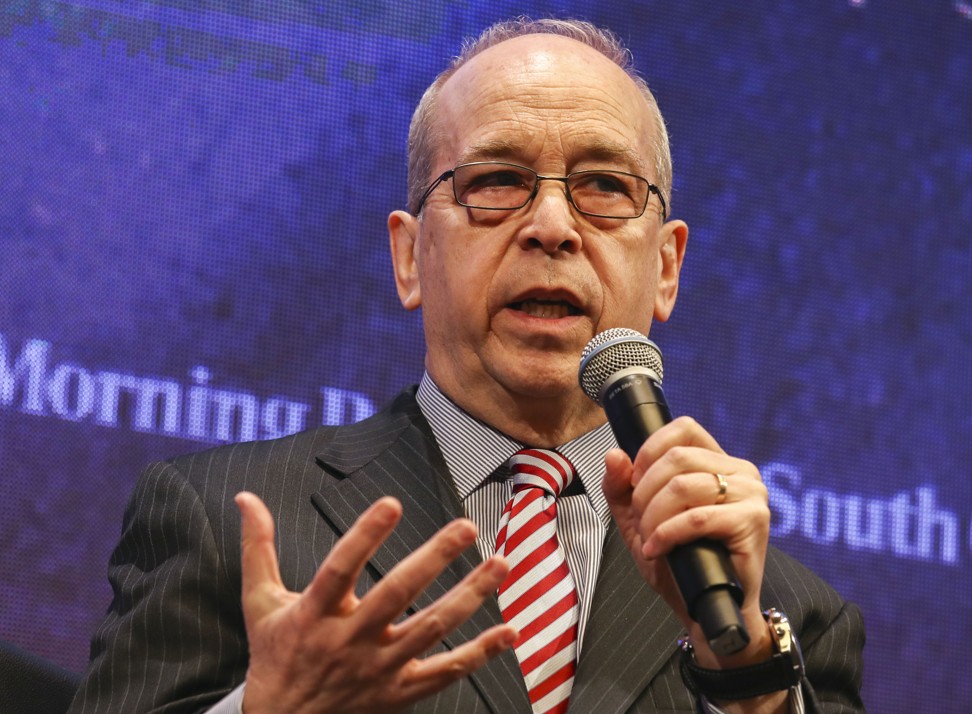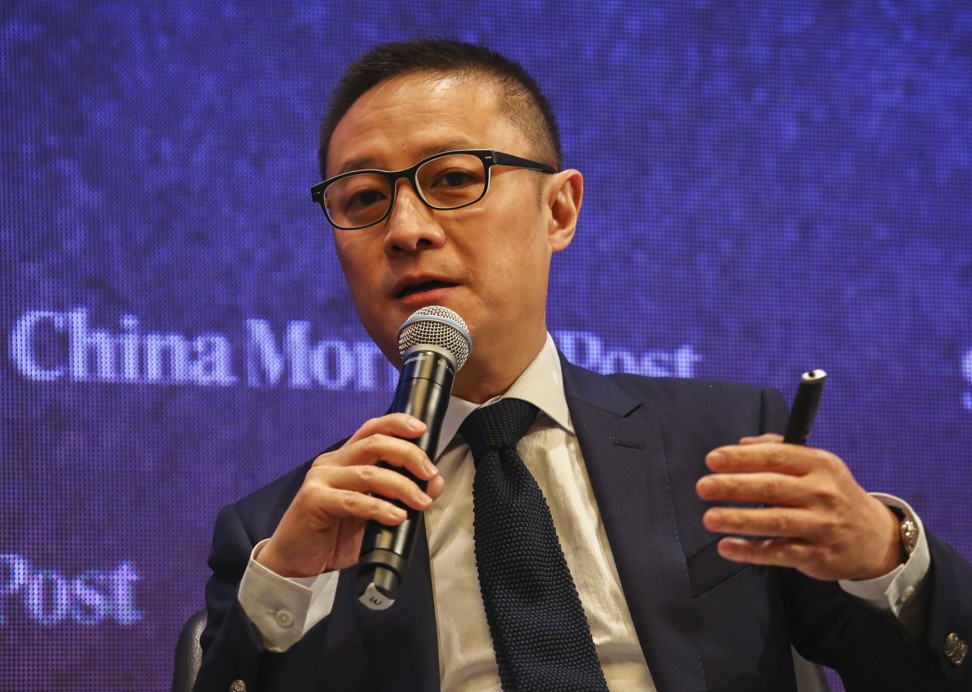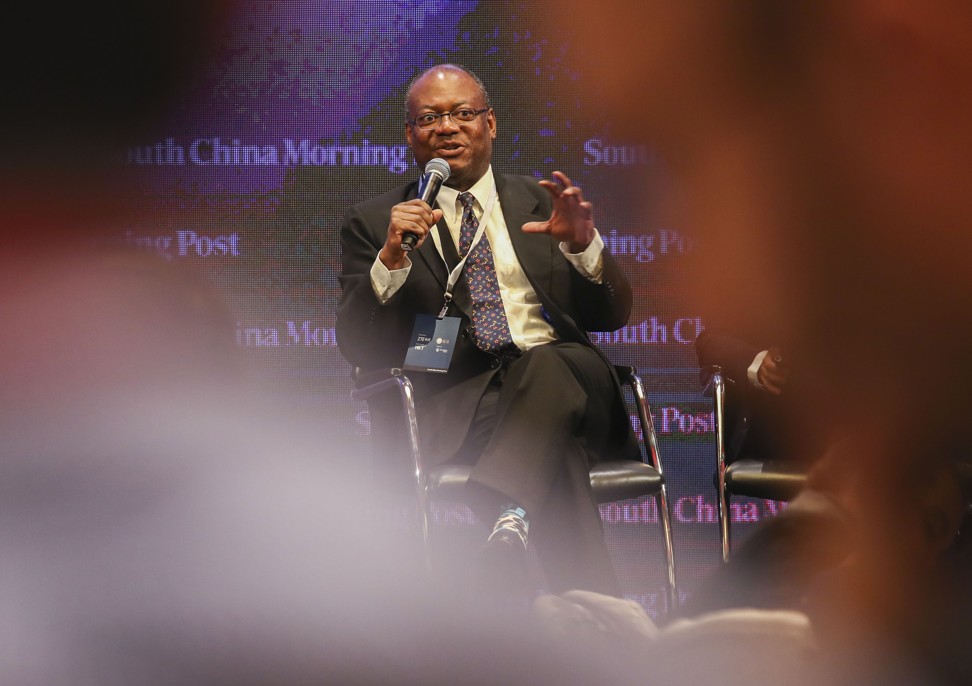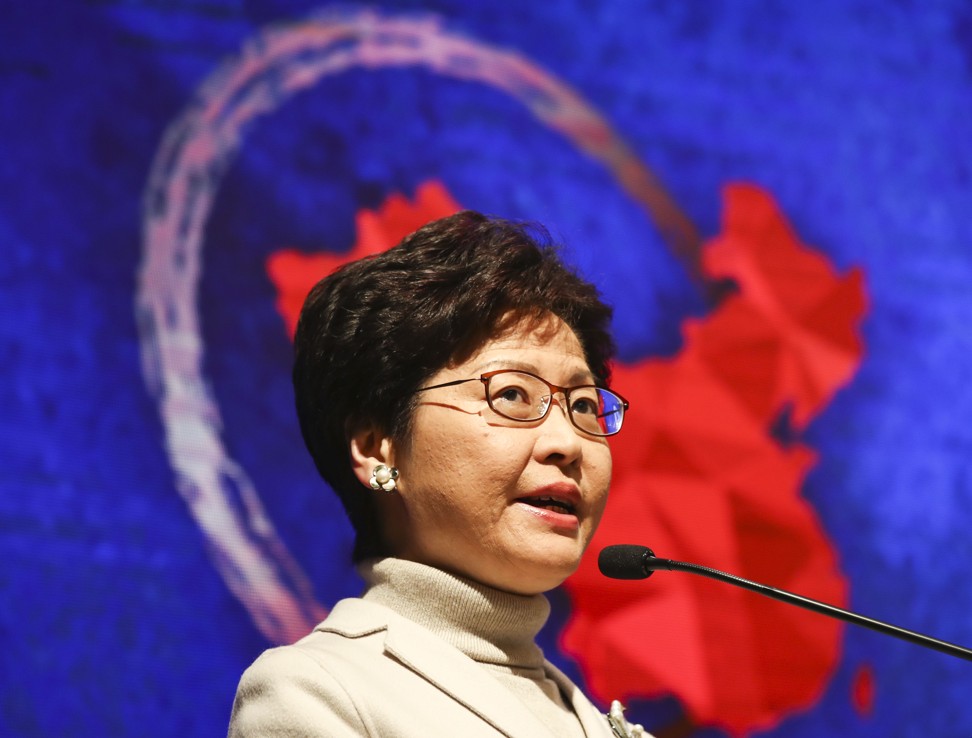
Sino-US relations and globalisation top the bill at China Conference in Hong Kong
There was plenty of lively debate at the South China Morning Post’s annual forum. Here are some of the highlights:
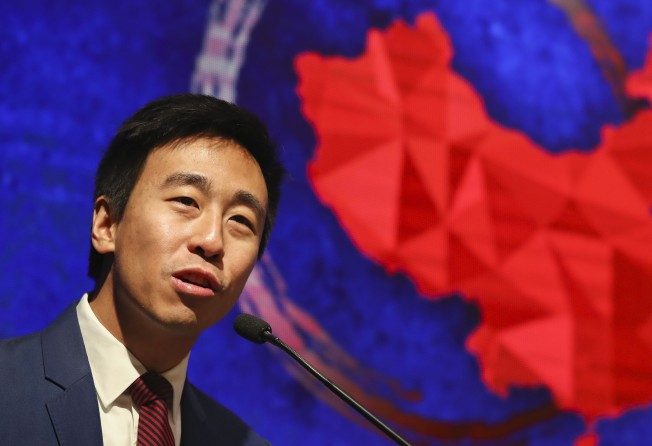
The growing rivalry between China and the United States in an era of change and uncertainty dominated the debate at this year’s China Conference in Hong Kong on Thursday.
At the annual event organised by the South China Morning Post, policymakers, government advisers, business leaders and academics discussed the challenges and opportunities faced by Beijing as it seeks to take a greater role in shaping the global geopolitical and economic landscape, and how it has reacted to being labelled a strategic competitor by US President Donald Trump.
Opening this year’s conference, the theme of which was “Globalisation: The China Perspective and the US Factor”, the Post’s chief executive Gary Liu, said that as Washington was retreating from its leadership role on the world stage, so China was transforming itself to become a central figure in shaping globalisation.
Here is what some of the other speakers had to say:
Carrie Lam, Hong Kong chief executive
In her opening remarks, Lam said that China had become a defender of globalisation and a champion for multilateral cooperation on trade, while Washington had aggressively promoted the politics of protectionism under the flag of localisation.
“Such an approach [by Washington] would undermine global efforts in promoting free trade, something which has served the world economy so well in the past,” she said.
Lam was upbeat about the city’s economic prospects and its role in the “Belt and Road Initiative”, Chinese President Xi Jinping’s pet project to promote trade and infrastructure development around the world.
“Hong Kong, traditionally an open and externally oriented economy, and enjoying unique advantages under ‘one country, two systems’, fits perfectly with that vision and is well placed to contribute what we are good at to what the nation needs,” she said.
Zhang Yansheng, former secretary general of the National Development and Reform Commission’s academic committee
In his review of the history of economic globalisation since the 1870s, Zhang said the world was currently facing growing protectionism and an anti-globalisation sentiment.
But while Xi spelt out his ambitions at the national party congress in October for China to play a central role on the global stage and promote the China model as an alternative for other nations to follow, Zhang was more cautious.
He said that China’s economic growth model over the past 30 years, which relied heavily on exports, was undergoing profound changes as it was no longer sustainable and if maintained would strain relations with the rest of the world.
“The next stage is an open economy that focuses on the balance of trade. Expanding imports is a very significant part of China becoming a big global power,” he said.
In the year ahead, relations between the US and China would be more significant than ever, he said.
“A key issue for 2018 is whether we can avoid international conflicts and confrontation, and the relationship between China and the US will largely decide if the world can move past the current globalisation interlude.”
Daniel Russel, former US assistant secretary of state for East Asian and Pacific Affairs
In a panel discussion on US-China economic relations, Russel warned that the two economic giants could be on a collision course amid signs that bilateral ties were moving from complementary to competitive.
Now diplomat in residence and senior fellow at the Asia Society Policy Institute, Russel said that the warning signs pointing towards tough trade actions against China by the Trump administration were unmistakable.
While noting a widespread concern among Americans in general over China’s economic and military rise, he said the change of attitude among the US business community was more worrisome.
“Traditionally, the US business community has been both the ballast in the boat of US-China relations and the propeller. The US business community has been … a major bulwark against protectionist measures in the United States. What we’re hearing widely is that we’re approaching a point of no return, that it’s too much, that American companies simply cannot operate in the Chinese environment in a way that’s remotely equivalent to the way that Chinese companies can operate in the US,” he said.
He urged Chinese decision-makers to take Trump’s warning signs seriously.
“Everybody loses by taking that step. When you factor in the prospect of retaliation, the situation gets a lot worse,” he said.
Edward Tse, chief executive of Gao Feng Advisory Company
The founder of the management consultancy dismissed criticism from the White House that China prevented market access and lacked reciprocal business arrangements.
“To say China is a closed environment … is dead wrong. There are sectors that are protected, but there are others that are open. The consumer sector, for example,” he said.
Eric Li, managing partner of Chengwei Capital
Speaking at a panel discussion on the commonalities between Chinese and Western cultures and values, moderated by Joe Tsai, chairman of SCMP Publishers, Li – an advocate for the Chinese model of one-party rule – questioned the so-called universal values that he said were to blame for the chaos and economic difficulties found in many Latin American, African and Asian countries.
China’s success, he said, was largely due to its refusal to follow the universal values set by Western countries.
Keith Richburg, former China correspondent for The Washington Post
Speaking at the same panel discussion as Li, Richburg, now director of the Journalism and Media Studies Centre at the University of Hong Kong, said that despite claims of Chinese exceptionalism, the democratic global system and universal values should be compatible with Chinese values.
Also, despite frequent complaints from Beijing about Washington’s containment policy, the US had over the past several decades aided China’s opening up.
“The goal of America’s China policy since the end of the cold war is not to contain China’s rise, but to direct its rise,” Richburg said.
